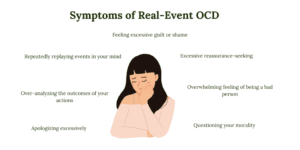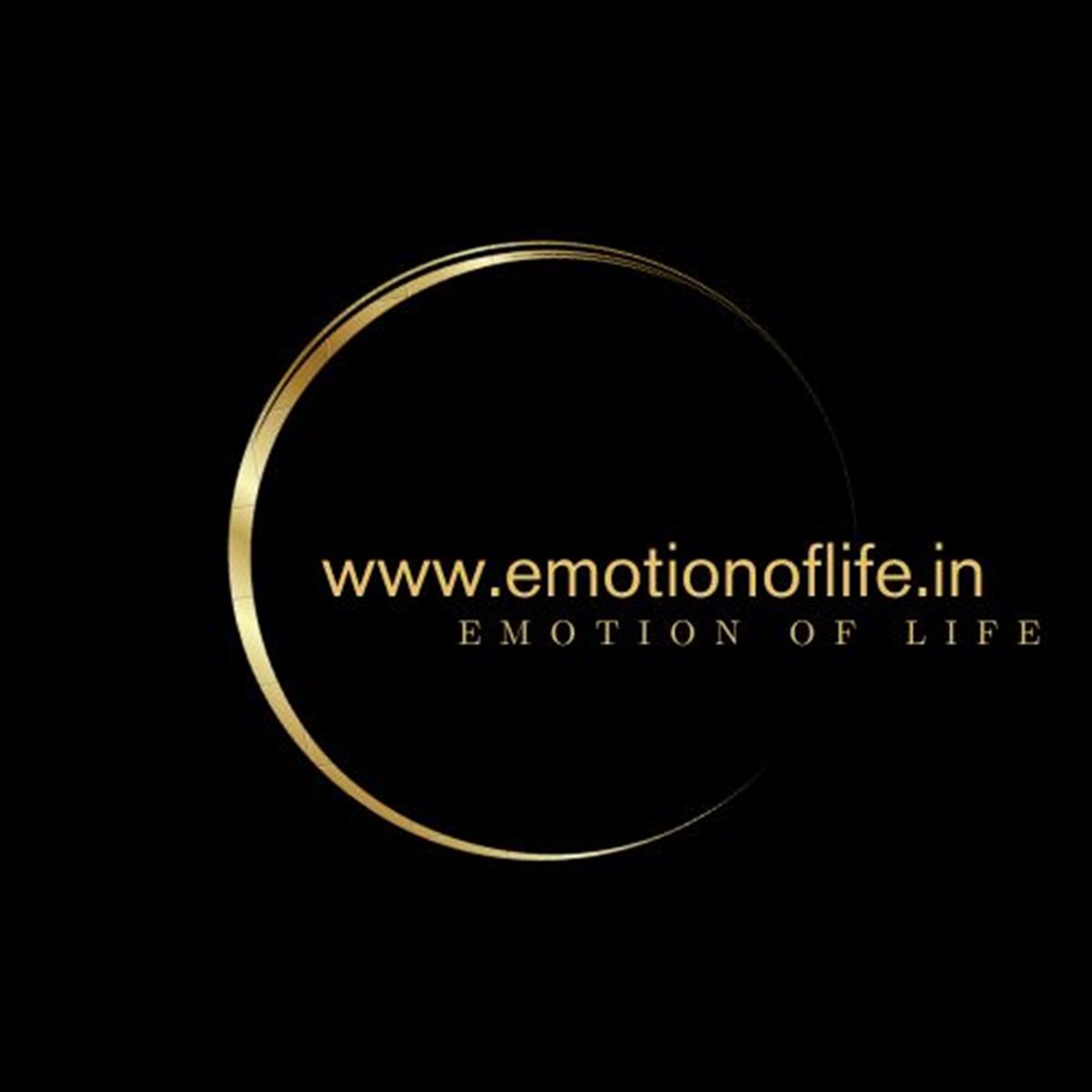
Real Events OCD is a form of obsessive-compulsive disorder where a person becomes fixated on things that actually happened in their past. These aren’t imagined scenarios—they’re real situations that the person can’t stop thinking about. The thoughts come back over and over again, often with intense worry or guilt, even if the event was minor or happened a long time ago.
People with this type of OCD might constantly replay situations in their head—like worrying they caused harm to someone, fearing they were responsible for a past accident, or feeling overwhelmed with guilt about how they handled something involving a loved one’s illness or death. Because the memories are real, the anxiety can feel especially convincing and hard to shake off.
These obsessive thoughts can take over a person’s mind, making it hard to concentrate on daily life. Work, relationships, and even simple tasks can become difficult when so much mental energy is being spent trying to make sense of or find relief from these distressing memories. People often fear they’re losing control or feel like something is seriously wrong with them—but they’re not alone, and help is available.
Signs and Symptoms of Real Events OCD
People experiencing Real Events OCD often face intense and ongoing distress tied to past events or perceived threats. While these concerns may be rooted in real memories or realistic fears, the way they take over the mind is what makes them part of OCD. Some common signs include:
- Fixating on possible dangers or disasters: You might find yourself constantly thinking about things like food contamination, germs, fires, or harmful substances in your environment. These fears often lead to repeated checking or cleaning behaviors, even when there’s no actual danger.
- Unwanted, distressing thoughts about violence or harm: You may experience sudden, graphic mental images or urges to hurt yourself or others—even if you would never actually act on them. These thoughts feel completely out of line with who you are, and they often lead to overwhelming guilt, confusion, and anxiety.
- Constant checking or repeating actions for reassurance: Even when everything appears safe, you might feel a powerful urge to double-check doors, stoves, or personal routines. You might wash your hands over and over, or mentally review steps you’ve taken just to feel “sure” nothing bad will happen.
- Intrusive thoughts involving death or danger: Thoughts about dying or harming someone can appear out of nowhere and leave you shaken. These aren’t desires or plans—they’re unwanted and deeply upsetting. But the fear of having these thoughts can lead to avoiding certain people, places, or activities altogether.
Obsessive Thoughts Linked to Real Events OCD
In Real Events OCD, the mind can become stuck on fears or doubts connected to real-life situations. These obsessive thoughts feel intense and urgent, even when there’s no logical reason for the fear. They can show up in many ways, including:
- Repeatedly checking for safety: You might feel the need to constantly double-check if things like doors, windows, or appliances are secure—even if you’ve already done so.
- Feeling the urge to arrange or organize things in a specific way: Some people find it hard to relax unless objects are perfectly aligned or placed “just right,” and may redo the arrangement multiple times.
- Doubting whether something truly happened: You may keep revisiting certain moments in your mind, trying to confirm whether they occurred the way you remember—or at all.
- Doing the same task again and again: Whether it’s locking the door or sending an email, you might repeat actions to be absolutely sure they were done correctly.
- Fearing something bad is going to happen, without any clear reason: You may have a constant, nagging sense that something is wrong or unsafe, even when everything seems fine.
- Obsessing over the possibility of making a mistake or harming someone: You might worry you’ve caused harm, offended someone, or messed something up—even when there’s no evidence to support these fears.
- Unwanted, disturbing mental images or urges: Thoughts about doing something violent, inappropriate, or dangerous can pop up against your will, leading to guilt and distress.
- Struggling to trust your memory or senses: You may feel unsure whether you really saw, heard, or did something—leading you to doubt your own experiences.
- Always needing others to confirm things are okay: Seeking reassurance from family, friends, or coworkers might become a habit to ease constant self-doubt or worry.
Common Obsessions in Real Events OCD
People with Real Events OCD often experience overwhelming thoughts that loop in their minds and cause serious emotional distress. These aren’t casual worries—they’re intense mental fixations that feel impossible to ignore. Here are some ways these obsessions can show up:
- Feeling the need to double-check for safety: You might constantly check that doors are locked, appliances are off, or other things are secure—even after already confirming them.
- Needing objects to be arranged ‘just right’: Some individuals feel deeply uncomfortable unless certain items are placed in a specific way, repeating the setup over and over until it feels “correct.”
- Replaying past events to confirm they happened a certain way: You may find yourself questioning whether something actually occurred the way you remember it—or if it even happened at all.
- Doing everyday tasks multiple times: Simple actions like sending an email, locking a door, or turning off the stove might be repeated again and again to feel confident they were done correctly.
- Persistent fear that something bad is lurking beneath the surface: Even if there’s no real evidence, you might feel convinced that something terrible is about to happen or that you’ve overlooked something dangerous.
- Worrying obsessively about making mistakes: You may feel haunted by the idea that you’ve hurt someone, done something wrong, or forgotten something important—despite having no solid reason to believe so.
- Unwanted, disturbing thoughts of harmful behavior: You might be plagued by thoughts of doing something violent or socially unacceptable. These thoughts are intrusive and unwanted, and they often cause deep shame or panic.
- Doubting your own memory or senses: It can feel like you can’t trust your own mind—constantly second-guessing what you saw, heard, or remembered.
- Looking to others for constant reassurance: You may often ask friends, family, or coworkers to confirm that everything is okay or that you didn’t mess something up—even when nothing is wrong.
Real Events OCD is a form of Obsessive-Compulsive Disorder marked by intense, distressing obsessions about real-life events, often accompanied by compulsive behaviors aimed at reducing the resulting anxiety. Unlike other types of OCD that may center around imagined or abstract fears, Real Events OCD revolves around actual past events or the fear of having caused harm, making it especially difficult to dismiss or rationalize. These intrusive thoughts can lead to severe emotional distress, persistent self-doubt, and disruptive compulsions that interfere with daily life, relationships, and overall well-being.
Understanding the nature of Real Events OCD is essential for recognizing that these intrusive thoughts are a symptom of a treatable mental health condition, not a reflection of reality or personal character. With proper diagnosis and evidence-based treatments such as Cognitive Behavioral Therapy (CBT), particularly Exposure and Response Prevention (ERP), individuals can learn to manage their symptoms effectively. Support from mental health professionals, loved ones, and peer communities can also play a critical role in recovery. With the right tools and support, those struggling with Real Events OCD can regain control over their thoughts and lead fulfilling, balanced lives.
You can write to us: info@emotionoflife.in or reach out us via call 9368503416 or visit our website- www.emotionoflife.in
